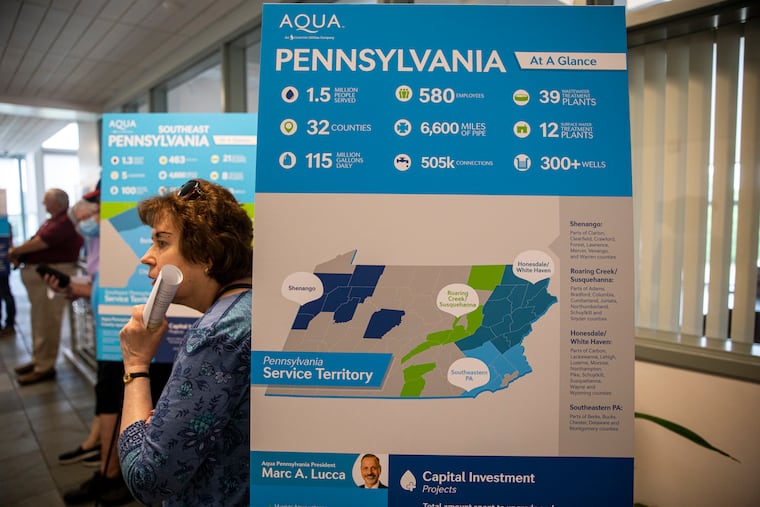Court’s reversal of East Whiteland sewer sale is a win for consumers | Editorial
A three-judge panel did what the Pennsylvania Public Utility Commission has repeatedly failed to do when it comes to reviewing the sale of utilities to for-profit companies.

Finally, someone in Pennsylvania put a stop to the irresponsible sell-off of water and sewer utilities to for-profit companies that are leaving customers across the state stuck with exorbitant hikes in their monthly bills.
This month, the Pennsylvania Commonwealth Court smartly halted the sale of the East Whiteland Township sewer system to Aqua Pennsylvania. In doing so, the three-judge panel did what the Pennsylvania Public Utility Commission (PUC) has repeatedly failed to do when it comes to reviewing the sale of the utilities.
In writing the court decision, President Judge Renée Cohn Jubelirer found that the PUC “erred and/or abused its discretion” in approving the sale to Aqua because any public benefit did not outweigh the harm of the transaction. The court’s decision effectively blocked the $54.9 million deal for the township’s sewer system for now.
» READ MORE: As Pa. municipalities sell water systems to for-profit companies, consumers are left paying the price | Editorial
Kudos to the court for recognizing the negative consequences that have occurred in other towns that sold off their water and sewer.
Once the sale is complete, residents have seen their bills skyrocket.
Look at what happened in New Garden Township in Chester County. After the township sold its wastewater system to Aqua in 2020, residents there saw their bills increase by roughly 90%.
Bill Ferguson, a New Garden resident, struggled to understand what he received in return: “Does the toilet flush any better? No. Nothing has changed other than who’s collecting the bill and how much it is,” he told WHYY. Ferguson, who cofounded a residents’ group called Keep Water Affordable, cheered the court ruling but wished it could be retroactive for other towns.
The Bucks County Commissioners saved themselves from that mistake after they called off a proposed $1.1 billion sale of its sewer system to Aqua after a public backlash to the deal. Other towns have not been so lucky. After Aqua took over, prices went up 98% in Limerick Township, 73% in East Norriton, and 69% in Cheltenham.
Of course, this entire problem was created by lawmakers in Harrisburg — with help from Big Water lobbyists who often help craft favorable legislation. The General Assembly passed a measure in 2016 called Act 12, which allowed for-profit companies to charge customers the appraised fair-market value of the acquired system rather than the lower, depreciated cost.
That opened the floodgates for these water companies to rush in, offering big bucks to town leaders to sell off a prized public asset.
For the most part, two companies have been gobbling up the water and sewer utilities here: Aqua and Pennsylvania American Water. The argument for the sale is that the towns get the utility — and its employees — off their books in return for a one-time windfall.
The for-profit water companies, in turn, argue that by cobbling together smaller utilities, they can reduce costs by scaling up and operating more efficiently.
Left unsaid is that these companies have shareholders who want to see a quick return on their investment, unlike a public utility that can take a long view and reinvest any proceeds into the operation. So far, any cost savings have not found their way to customers.
» READ MORE: Our water is becoming privatized. That’s a good thing. | Opinion
Residents in East Whiteland were saved by Pennsylvania Consumer Advocate Patrick Cicero, who successfully argued that the PUC failed to prove Aqua’s acquisition would provide any public benefit and that the sale would increase costs for the township’s 3,900 residents.
But the fight is not over. The East Whiteland supervisors, Aqua, and the PUC are seeking to have a rehearing on the sale. The court decision should be upheld, and East Whiteland residents should let their township supervisors know this is a bad deal.
Rather than allow small towns to continue to fall prey to Big Water, the General Assembly should repeal the statute that opened the door for utility customers to get gouged.